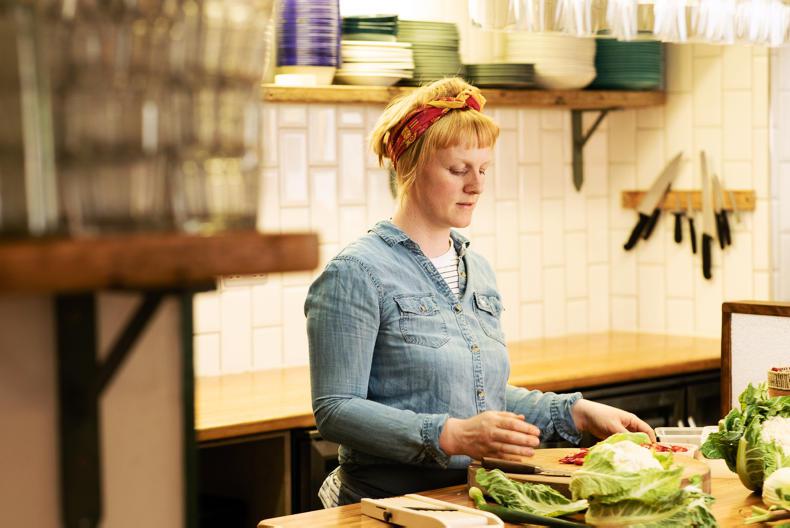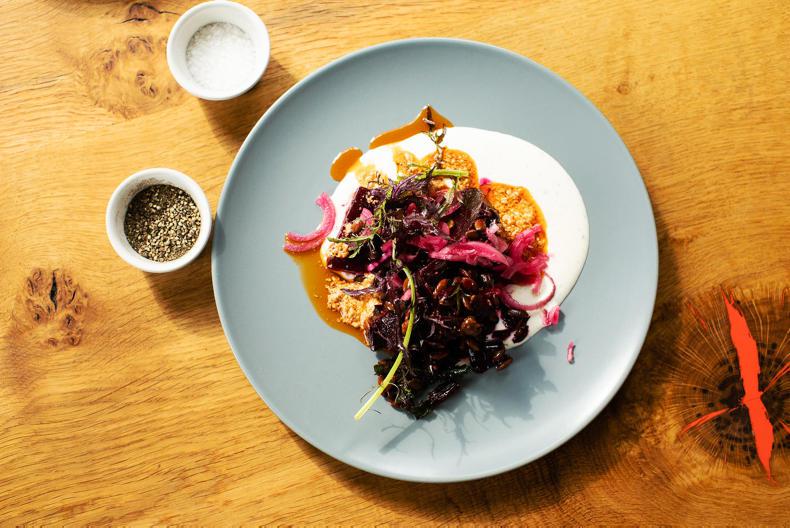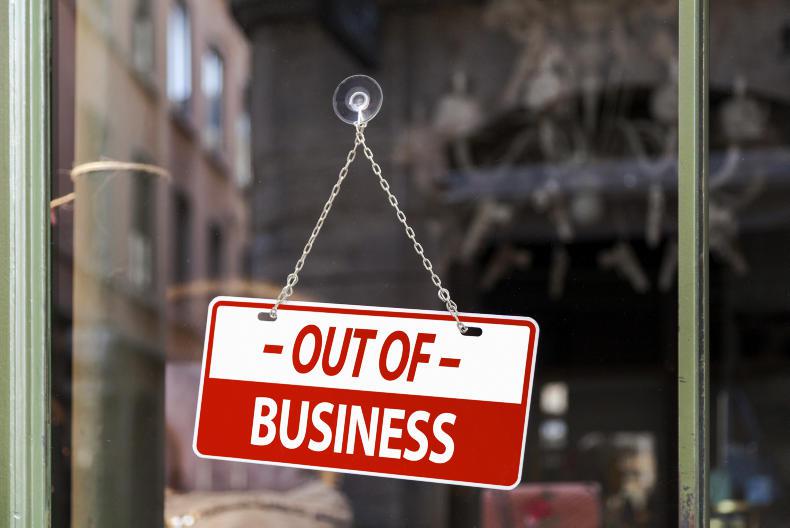The recent news that Michelin-starred restaurant Mews in Baltimore, Co Cork was closing its doors sent shock through the Irish food community.
With their hyper-local tasting menu, priced at €95 (which was considered to be of good value), many believed diners were travelling to the small seaside village in droves for the experience.
In a statement released on the 9 January, owner Robert Collender wrote that resources for the restaurant have always been tight, and continuing on would be unsustainable, despite his best efforts to put a solid business plan in place.
“I have endeavoured in the past year to reposition the business for the future, but it became clear that our project here had run out of steam,” the statement reads.
It’s a tough time of year and it’s tough in business
Mews is not the only Irish restaurant to have closed, so far, in 2020. Other rural restaurants in Cork – Richy’s and Deasy’s, both in Clonakilty – shut their doors, as did Arundel’s By The Pier in Ahakista.
Restaurant Association of Ireland chief executive Adrian Cummins addressed these closures, and others, in his speech at the launch of the annual Irish Restaurant Awards on the 8 January.
“It’s a tough time of year and it’s tough in business,” he said. “We have seen some casualties in the first few days of January. I know of eight restaurants that have closed. That’s eight closures in the first eight days of the year, or one a day.”
Do diners go out of their way to give support to these restaurants because they buy local ingredients?
It is considered best practise for restaurants to source local ingredients for their menus. Most chefs and restauranteurs agree that extra marketing opportunities and support in kind from local producers makes buying local worth the extra cost, when there is one.
But do diners go out of their way to give support to these restaurants because they buy local ingredients?
For many rural restaurants, the month of January can be financially crippling. With low footfall, high costs and little help from the Government regarding the recent VAT reinstatement, balancing the books is a constant struggle.

Niamh Fox is executive chef and owner of Little Fox in Ennistymon.
Straight from the Fox's mouth
Niamh Fox is executive chef and owner of Little Fox in Ennistymon, Co Clare. Niamh has previously worked with several well-known Irish chefs, like Jess Murphy of Kai in Galway and Dennis Cotter of Café Paradiso in Cork. With Little Fox, her aim is to bring locally-grown, seasonal foods to diners in a relaxed, bright setting.
Niamh feels that support for rural restaurants can come in many forms, but all are badly needed.
We have to become a food destination, so people can build a weekend around dining with us
“A rural restaurant faces more challenges than those in larger urban areas,” she says.
“We don’t have the same passing trade. We have to become a food destination, so people can build a weekend around dining with us – for example, in combination with surfing, walking or traditional music pubs.”
Rural restaurants also have problems with very limited broadband, and bad weather conditions can deter people venturing out
Niamh believes that retention of staff is of great importance to rural restaurants. With the amount of training and imparting ethos needed. However, when she finds good staff, she will go to great lengths to keep them employed. This could include remaining open during the off-season, even if it doesn’t make financial sense to do so.
“Rural restaurants also have problems with very limited broadband, and bad weather conditions can deter people venturing out in the dark on wet roads in winter,” she adds.
The issue of “no-shows” (reserved tables that fail to show up despite having booked and confirmed) has been cited as a rampant problem by many industry professionals. Some restaurants have started enforcing a booking policy requiring a credit card number at the time of reservation. Even so, regularly losing large bookings due to no-shows can lead to insurmountable costs.

A Typical Menu Item at Little Fox in Ennistymon.
“No-shows are a terrible problem for restaurants,” Niamh says. “If a table for six is booked; I turn away other people who would like to book. Then those six people don’t turn up – or don’t even have the manners to lift the phone and cancel. I have staff to pay, food is wasted as a result, and a small restaurant cannot sustain this.”
Consumer trends have changed the way we eat which, in many ways, has had a negative impact on local restaurants. For takeaways or pizza delivery services, this is a positive change – diners are choosing to eat in the comfort of their own homes more often – but for smaller restaurants who take care to source ingredients carefully, this shift negatively affects their bottom line.
“I’m not at all surprised to see so many restaurants closing down,” Niamh admits. “It’s very difficult to make money running a restaurant.”
The recent news that Michelin-starred restaurant Mews in Baltimore, Co Cork was closing its doors sent shock through the Irish food community.
With their hyper-local tasting menu, priced at €95 (which was considered to be of good value), many believed diners were travelling to the small seaside village in droves for the experience.
In a statement released on the 9 January, owner Robert Collender wrote that resources for the restaurant have always been tight, and continuing on would be unsustainable, despite his best efforts to put a solid business plan in place.
“I have endeavoured in the past year to reposition the business for the future, but it became clear that our project here had run out of steam,” the statement reads.
It’s a tough time of year and it’s tough in business
Mews is not the only Irish restaurant to have closed, so far, in 2020. Other rural restaurants in Cork – Richy’s and Deasy’s, both in Clonakilty – shut their doors, as did Arundel’s By The Pier in Ahakista.
Restaurant Association of Ireland chief executive Adrian Cummins addressed these closures, and others, in his speech at the launch of the annual Irish Restaurant Awards on the 8 January.
“It’s a tough time of year and it’s tough in business,” he said. “We have seen some casualties in the first few days of January. I know of eight restaurants that have closed. That’s eight closures in the first eight days of the year, or one a day.”
Do diners go out of their way to give support to these restaurants because they buy local ingredients?
It is considered best practise for restaurants to source local ingredients for their menus. Most chefs and restauranteurs agree that extra marketing opportunities and support in kind from local producers makes buying local worth the extra cost, when there is one.
But do diners go out of their way to give support to these restaurants because they buy local ingredients?
For many rural restaurants, the month of January can be financially crippling. With low footfall, high costs and little help from the Government regarding the recent VAT reinstatement, balancing the books is a constant struggle.

Niamh Fox is executive chef and owner of Little Fox in Ennistymon.
Straight from the Fox's mouth
Niamh Fox is executive chef and owner of Little Fox in Ennistymon, Co Clare. Niamh has previously worked with several well-known Irish chefs, like Jess Murphy of Kai in Galway and Dennis Cotter of Café Paradiso in Cork. With Little Fox, her aim is to bring locally-grown, seasonal foods to diners in a relaxed, bright setting.
Niamh feels that support for rural restaurants can come in many forms, but all are badly needed.
We have to become a food destination, so people can build a weekend around dining with us
“A rural restaurant faces more challenges than those in larger urban areas,” she says.
“We don’t have the same passing trade. We have to become a food destination, so people can build a weekend around dining with us – for example, in combination with surfing, walking or traditional music pubs.”
Rural restaurants also have problems with very limited broadband, and bad weather conditions can deter people venturing out
Niamh believes that retention of staff is of great importance to rural restaurants. With the amount of training and imparting ethos needed. However, when she finds good staff, she will go to great lengths to keep them employed. This could include remaining open during the off-season, even if it doesn’t make financial sense to do so.
“Rural restaurants also have problems with very limited broadband, and bad weather conditions can deter people venturing out in the dark on wet roads in winter,” she adds.
The issue of “no-shows” (reserved tables that fail to show up despite having booked and confirmed) has been cited as a rampant problem by many industry professionals. Some restaurants have started enforcing a booking policy requiring a credit card number at the time of reservation. Even so, regularly losing large bookings due to no-shows can lead to insurmountable costs.

A Typical Menu Item at Little Fox in Ennistymon.
“No-shows are a terrible problem for restaurants,” Niamh says. “If a table for six is booked; I turn away other people who would like to book. Then those six people don’t turn up – or don’t even have the manners to lift the phone and cancel. I have staff to pay, food is wasted as a result, and a small restaurant cannot sustain this.”
Consumer trends have changed the way we eat which, in many ways, has had a negative impact on local restaurants. For takeaways or pizza delivery services, this is a positive change – diners are choosing to eat in the comfort of their own homes more often – but for smaller restaurants who take care to source ingredients carefully, this shift negatively affects their bottom line.
“I’m not at all surprised to see so many restaurants closing down,” Niamh admits. “It’s very difficult to make money running a restaurant.”








 This is a subscriber-only article
This is a subscriber-only article










SHARING OPTIONS: